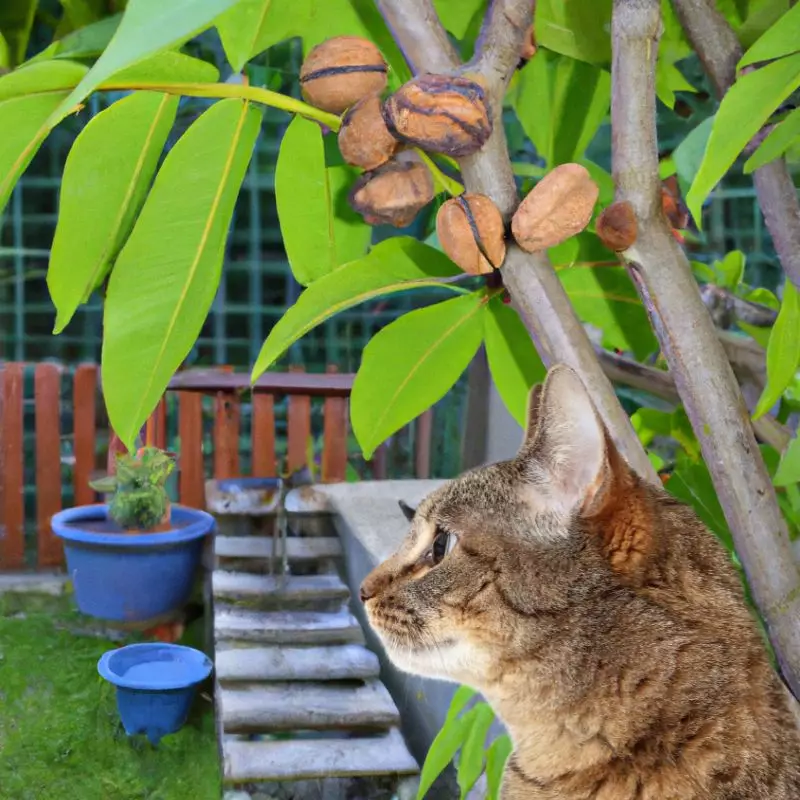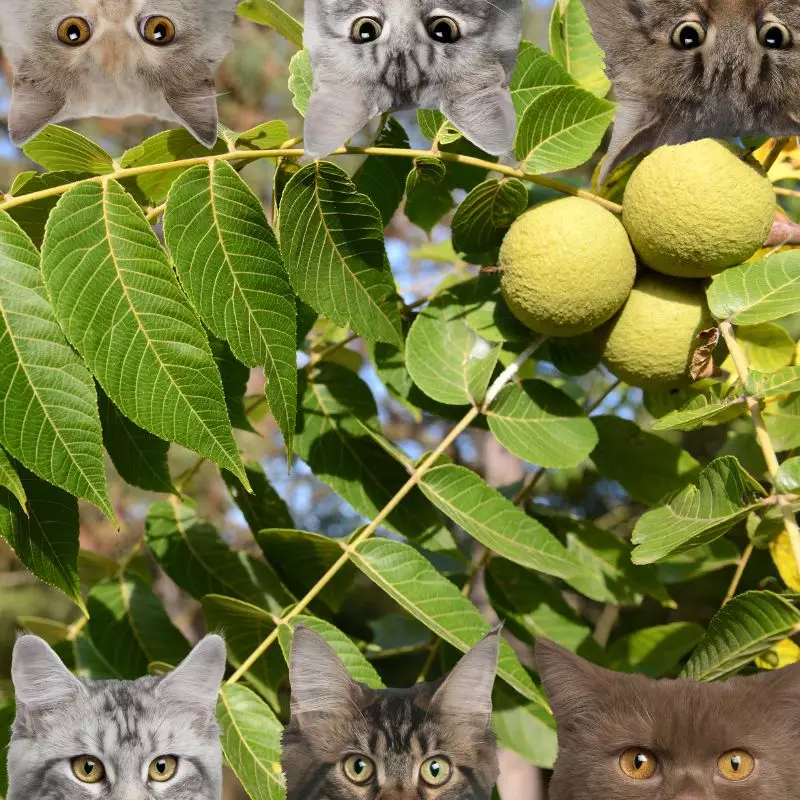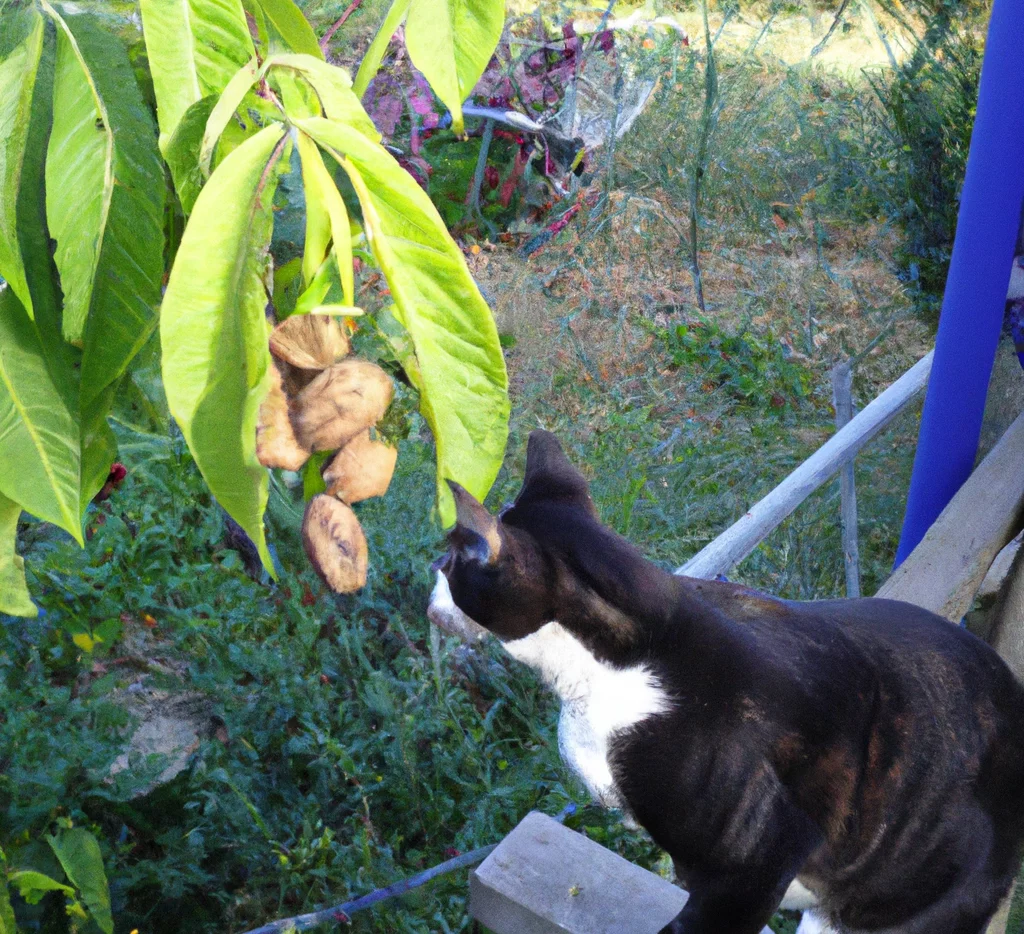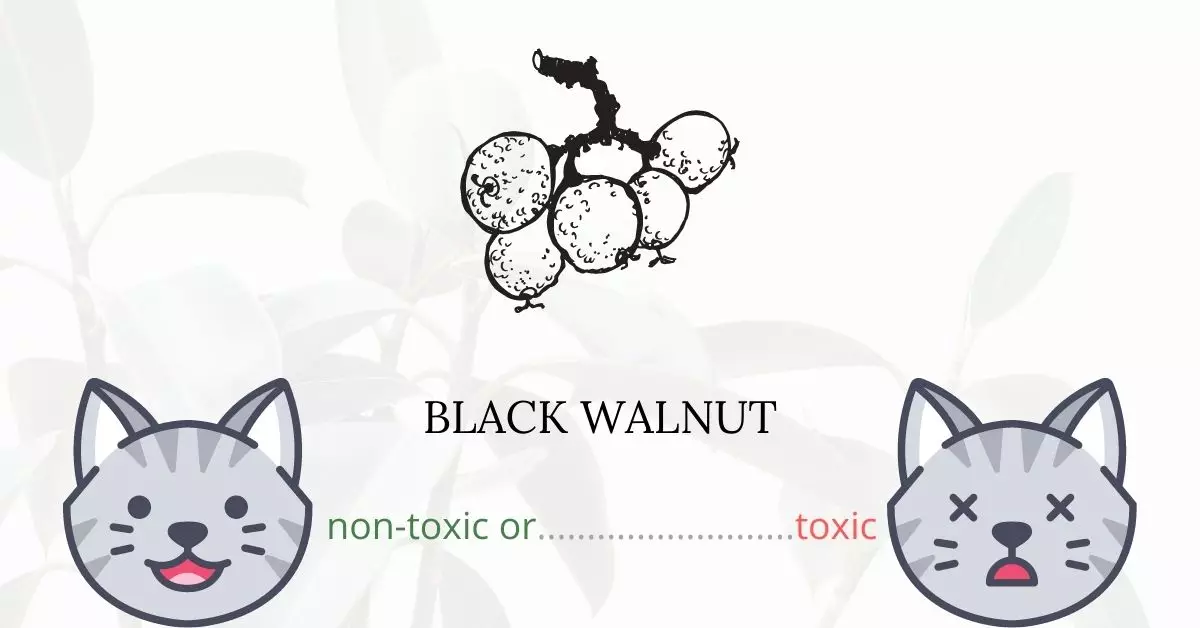Contrary to common concerns, black walnut is not categorized as toxic for cats, nor is it harmful to dogs or horses, as stipulated by the American Society for the Prevention of Cruelty to Animals (ASPCA).
This article is a collaborative endeavor, meticulously crafted with contributions from a cadre of seasoned Doctors of Veterinary Medicine (DVMs). Their invaluable insights and profound expertise have enabled us to furnish precise and contemporary information regarding the possible risks related to various plants, focusing, in this instance, on Black Walnut and its impacts on cats. Our mission is to provide clear, accurate, and reliable information, and to ensure the validity of our content, we have also conducted extensive research, consulting reputable and authoritative sources such as the ASPCA and PetMD, to study every plant discussed, and confirm or debunk presumed risks associated with them.
Can Cats Eat Black Walnut?

Whilst it is safe for cats to be around a black walnut tree, it does not mean that it is ideal for cats to eat, particularly its nuts. Black walnuts will not harm your cat, but you should avoid providing them to your cat in the first place.
This is because cats’ digestive systems were not designed to process plant matter. As a consequence, black walnuts may still cause digestive issues in your cat. As a result, walnut eating can induce stomach irritation, which can lead to vomiting, diarrhea, or abdominal pain.
Black walnuts, like other nuts, have a high fat and oil content. A large fat intake might also upset your cat’s stomach, resulting in vomiting and diarrhea. And this may lead you to ask if walnut oil is safe for cats.
The answer is emphatical no. Walnut fats and oils may cause gastric discomfort in cats, as well as pancreatitis.
What is a Black Walnut?

The black walnut is a huge, rough deciduous tree that grows 50-75 feet tall and wide that is native to North America. Also known as juglans nigra from the walnut family, Juglandaceae, black walnut has wide-spreading branches that make an erect, umbrella-like crown in the woods. The wood of the black walnut trees is deep dark in color.
On the stem, the leaves are pinnately complex and alternately placed. They’re 30 to 60 cm long, and the leaves are usually even-pinnate, although there’s a lot of variance among them. Fruit matures into a spherical fruit or nut with a brownish-green, semi-fleshy husk and a brown, corrugated nut in the summer or autumn. The entire fruit, including the husk, ripens around October, and the seed is tiny and firm.
Black walnut is a popular native hardwood for furniture, gunstocks, and veneer. Individual black walnut trees may be quite expensive. Since colonial times and earlier, the black walnut has provided edible nuts and a blackish dye made from the husks.
Keeping Cats Away From Black Walnut

Cats who love to stay outdoors are more exposed to plants of all kinds. Limiting your cat’s access will not only safeguard them from the toxic plants that might be growing around you, but it will also protect them from other dangers.
Plants to Avoid For Your Cats
If you are a cat owner and unsure if the plants growing in your yard are harmful to your cats, check out this list of toxic plants for cats. You can also check our list of non-toxic plants for cats.





